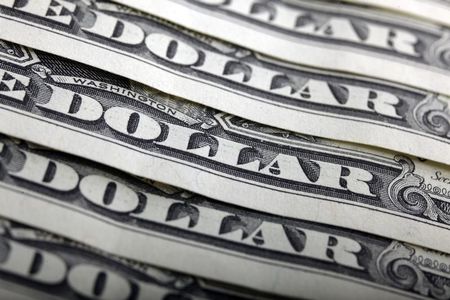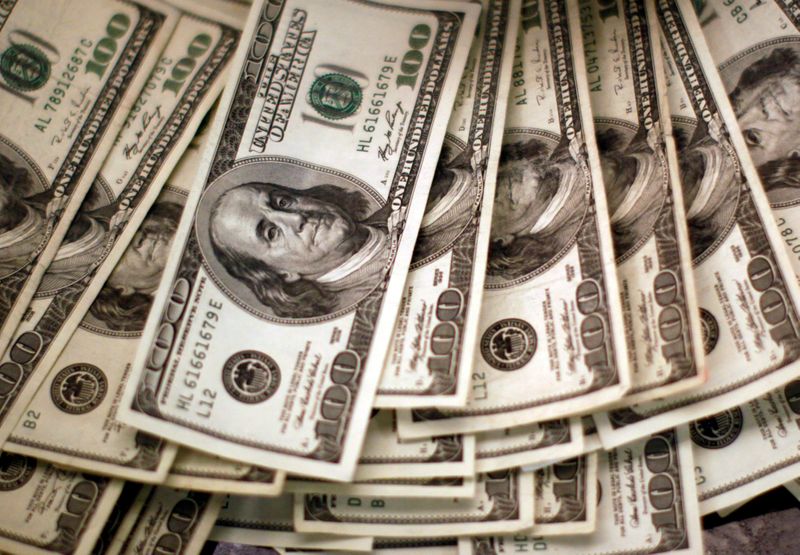Yen gains as weak U.S. data, economic uncertainty dim outlook
Reuters
Published Sep 16, 2020 09:45PM ET
Updated Sep 17, 2020 12:37PM ET

By Gertrude Chavez-Dreyfuss and Sinéad Carew
NEW YORK (Reuters) - The safe-haven yen rose to a seven-week high against the dollar and a 1-1/2-month peak versus the euro, amid another batch of generally weak U.S. data and overall uncertainty about the economic outlook, backing the Federal Reserve's concern on Wednesday about the pace of recovery.
The dollar index rose to a one-week high, but was last little changed on the day, as risk appetite diminished. Shares on Wall Street were lower and U.S. Treasuries were fairly well-supported.
At Wednesday's policy meeting, the Fed pledged to keep rates near zero until the labor market reaches "maximum employment" and inflation is on track to "moderately exceed" the 2% target, with most policymakers seeing rates on hold through at least 2023.
"What we've seen in the aftermath of the Fed meeting is a bit of a risk-off tone and one of the things that's come back into play since early September is a realignment of FX and equity correlations so the consolidation of the dollar remains intact and there's some negative bias in the risk space," said Mazen Issa, senior FX strategist, at TD Securities. "It's helping to put a little more downside pressure on some of the majors."
Wednesday's set of U.S. data also added to the gloom in risk sentiment.
U.S. jobless claims remained elevated at 860,000, while both housing starts and the Philadelphia Fed business index fell.
"Taken together, this morning's data releases suggest that – despite positive momentum – there is a long way to go until pre-pandemic levels of activity are achieved," said Matthew Eidinger, market strategist, at Cambridge Global Payments (NYSE:GPN).
He added that against a soft economic backdrop, the Fed's commitment to hold rates near zero for some time appears well-justified.
"It is clear that the economy needs all the help it can get, from monetary and fiscal policymakers alike," Eidinger said.
In late morning trading, the dollar fell 0.3% against the yen to 104.62 yen
The euro dropped 0.3% to 123.60 yen (EURJPY=EBS). Earlier it touched a low of 123.33 yen, its weakest level since late July.
The dollar index, a measure of its value against six major rivals, was last little changed at 93.12 (=USD), but hit a one-week high earlier in the session.
The euro (EUR=EBS) briefly hit a one-month low earlier at $1.1737 before trimming some losses to stand 0.1% lower on the day at $1.1809.
The Australian, New Zealand and Canadian dollars
That said, with the new guidance from the Fed focused on keeping U.S. interest rates at current record lows until employment and inflation reach its targets, some strategists argue any dollar strength is likely to be temporary.
(Graphic: https://fingfx.thomsonreuters.com/gfx/mkt/jbyprmjeqve/USD%20chart%20for%20mktreport.JPG)
The pound fell 0.4% to $1.2916

Written By: Reuters
Trading in financial instruments and/or cryptocurrencies involves high risks including the risk of losing some, or all, of your investment amount, and may not be suitable for all investors. Prices of cryptocurrencies are extremely volatile and may be affected by external factors such as financial, regulatory or political events. Trading on margin increases the financial risks.
Before deciding to trade in financial instrument or cryptocurrencies you should be fully informed of the risks and costs associated with trading the financial markets, carefully consider your investment objectives, level of experience, and risk appetite, and seek professional advice where needed.
Fusion Media would like to remind you that the data contained in this website is not necessarily real-time nor accurate. The data and prices on the website are not necessarily provided by any market or exchange, but may be provided by market makers, and so prices may not be accurate and may differ from the actual price at any given market, meaning prices are indicative and not appropriate for trading purposes. Fusion Media and any provider of the data contained in this website will not accept liability for any loss or damage as a result of your trading, or your reliance on the information contained within this website.
It is prohibited to use, store, reproduce, display, modify, transmit or distribute the data contained in this website without the explicit prior written permission of Fusion Media and/or the data provider. All intellectual property rights are reserved by the providers and/or the exchange providing the data contained in this website.
Fusion Media may be compensated by the advertisers that appear on the website, based on your interaction with the advertisements or advertisers.